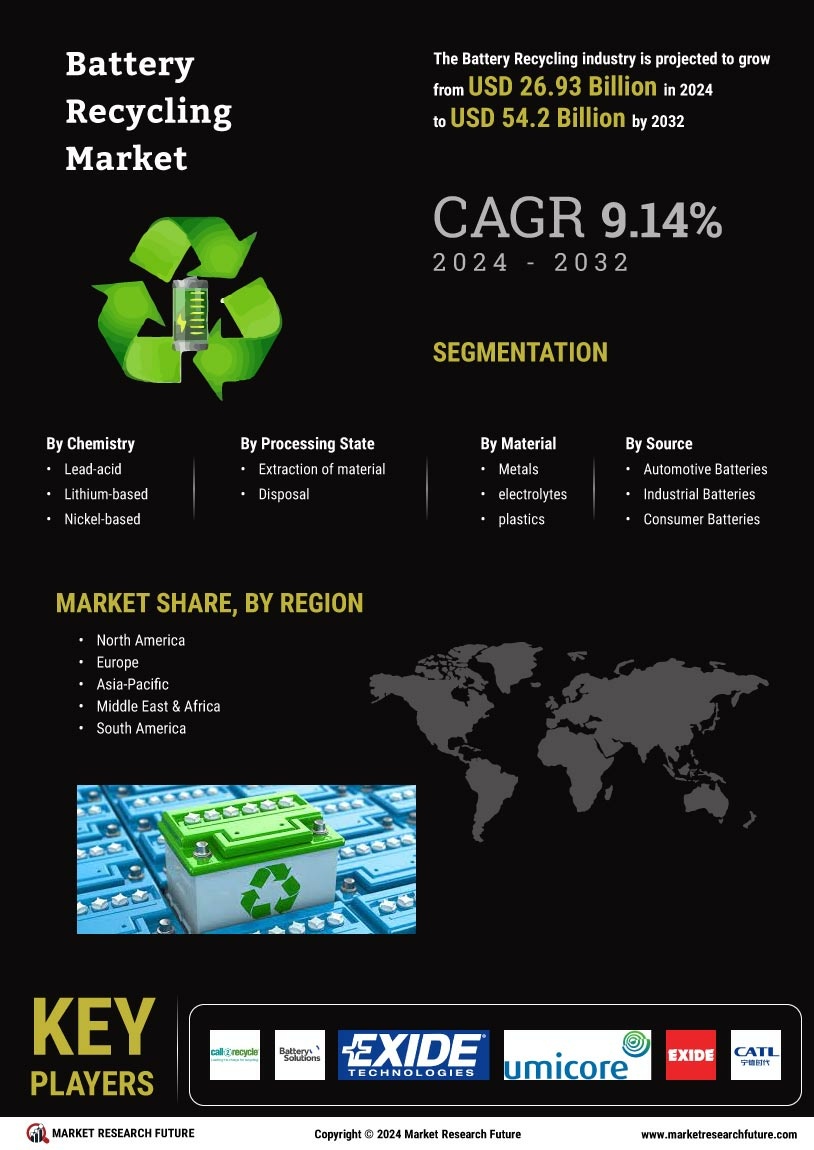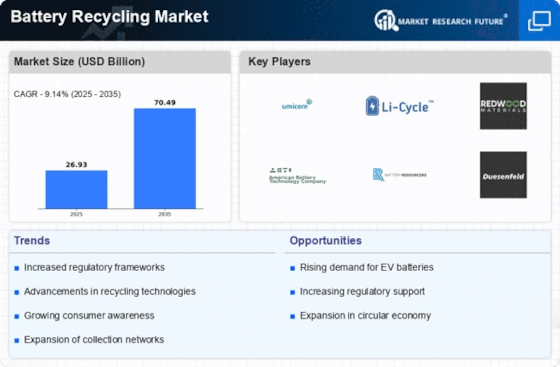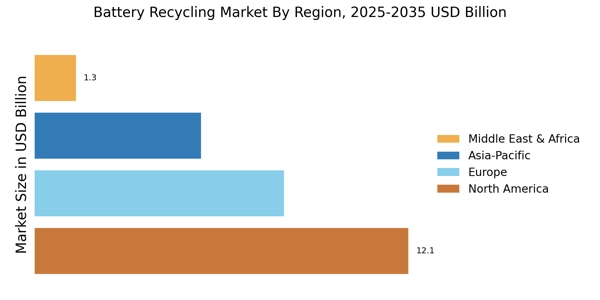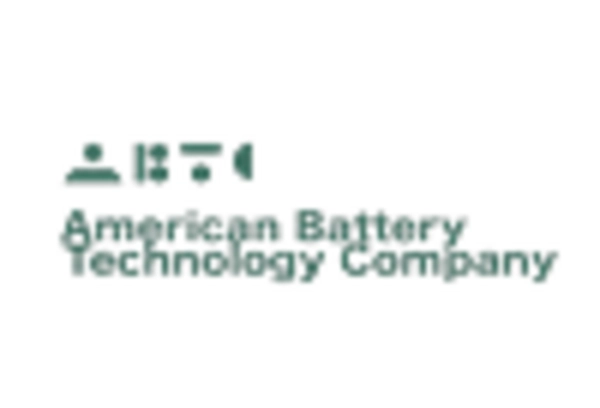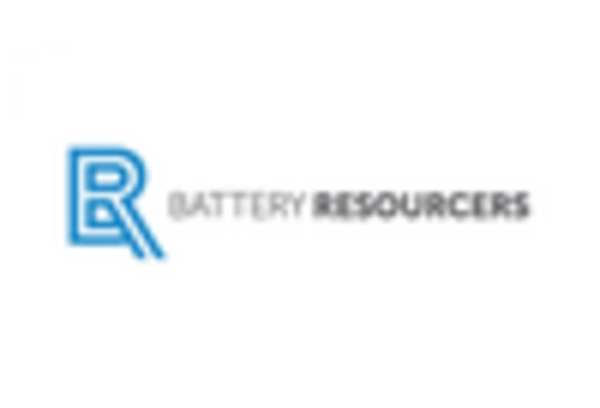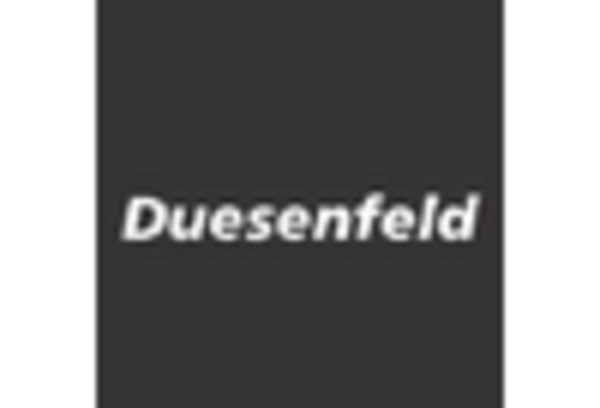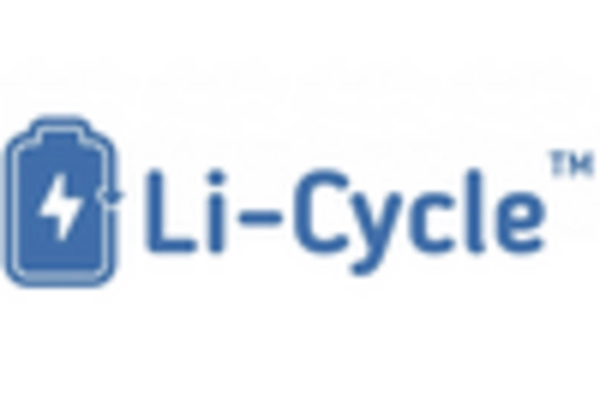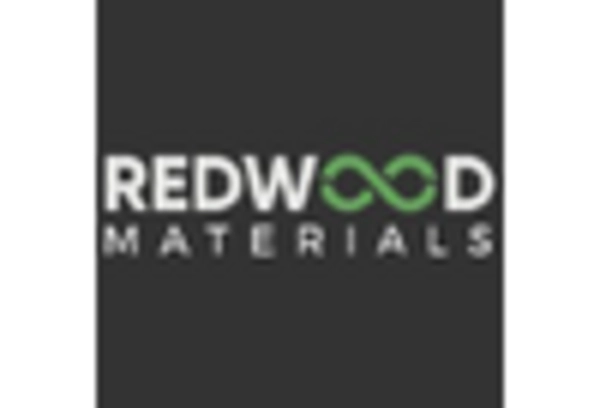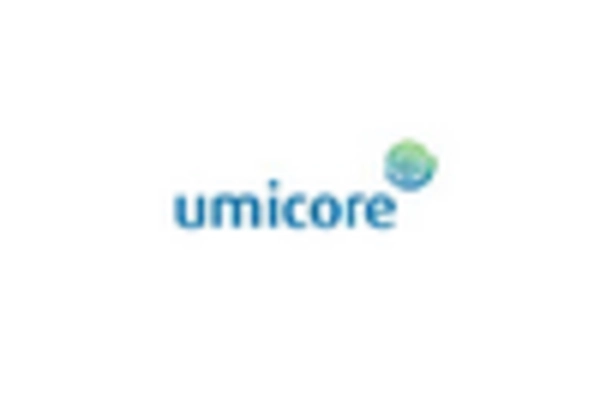The Battery Recycling Market is currently experiencing a notable transformation driven by increasing environmental awareness and regulatory pressures. As the demand for electric vehicles and portable electronic devices continues to rise, the need for sustainable disposal and recycling of batteries has become paramount. This market appears to be evolving, with stakeholders recognizing the potential for recovering valuable materials such as lithium, cobalt, and nickel from spent batteries.
The shift towards a circular economy is influencing various sectors, prompting manufacturers to invest in advanced recycling technologies and processes. Furthermore, collaboration among industry players, governments, and research institutions is likely to enhance the efficiency and effectiveness of recycling operations. In addition, the Battery Recycling Market is witnessing a surge in innovation, with new methods being developed to improve recovery rates and reduce environmental impact.
Emerging technologies, such as hydrometallurgical and pyrometallurgical processes, are gaining traction, suggesting a potential shift in how batteries are processed. The market landscape is also characterized by increasing consumer awareness regarding the importance of responsible battery disposal, which may drive demand for recycling services. Overall, the Battery Recycling Market is poised for growth, as it adapts to the evolving needs of society and the environment, while addressing the challenges associated with battery waste management.
Technological Advancements in Recycling Processes
The Battery Recycling Market is witnessing a wave of technological innovations aimed at enhancing the efficiency of recycling processes. New methods, such as direct recycling and advanced hydrometallurgical techniques, are being developed to improve material recovery rates. These advancements not only optimize resource extraction but also minimize environmental impact, indicating a shift towards more sustainable practices.
Comprehensive battery statistics are becoming vital for regulators to track the lifecycle and circularity of materials in the energy transition.
Regulatory Frameworks and Policies
The global battery recycle industry is currently transitioning from a compliance-driven model to a strategic material recovery model to secure domestic supply chains. The influence of regulatory frameworks on the Battery Recycling Market is becoming increasingly pronounced. Governments worldwide are implementing stricter regulations regarding battery disposal and recycling, which may compel manufacturers to adopt more sustainable practices. This trend suggests a growing recognition of the environmental implications of battery waste and the need for responsible management.
Consumer Awareness and Demand for Sustainable Solutions
There is a noticeable increase in consumer awareness regarding the importance of battery recycling. Modern regulations regarding industrial battery disposal require strict tracking and documentation to ensure heavy metals do not contaminate local ecosystems. This trend indicates a shift in consumer behavior, with a preference for products and services that prioritize environmental responsibility.
